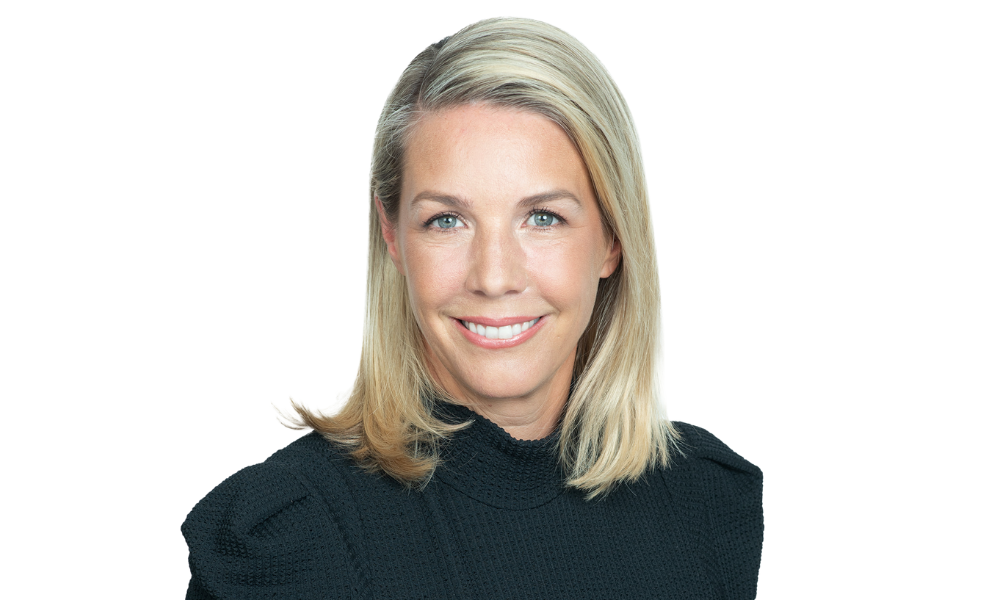Co-head, North America Institutional at Ninety One outlines why institutional investors are recalibrating to countries like the UAE, Brazil and South Africa amid trade tensions

In the wake of persistent trade tensions ignited by US President Donald Trump’s tariff policies, institutional investors are responding not with retreat, but with recalibration to other countries.
Katherine Tweedie highlights a growing momentum toward emerging markets and not just as a hedge, but as a strategic allocation.
“Post-election and inauguration, there was a lot of positive sentiment around the business mindset and his focus on positive stock market returns,” noted Tweedie, co-head, North America Institutional at Ninety One.
“Now, a lot of parties around the world have been a bit taken aback at the volatility that has been introduced by a lot of his administration's actions, both within the US, as well as the decision around tariffs and trade wars and the volatility that comes with this because it hasn't been consistent. Markets don’t always appreciate uncertainty,” she said.
She agrees that while unpredictability has rattled confidence in US-centric strategies, it has also reopened the door to broader international diversification, especially in EM assets. For years, passive and active investments in US equities outperformed. But with stickier inflation, tightening operating margins, and inconsistent policy direction, many institutional players are reassessing exposure.
“We’re seeing this interesting transition point for possible uptick in interest and allocation outside of the US,” she said.
Tweedie underscored not all countries are being impacted by the trade war. Ninety One has taken a targeted, active approach, homing in on countries that are either insulated from trade conflicts or structurally primed for growth. For instance, she pointed to the UAE.
“It seems relatively cushioned from the tit for tat that’s going on in other markets,” she said. With roughly 3 per cent overweight exposure to the UAE relative to benchmark, Ninety One is looking closely at “really interesting opportunities” across property, banking, and consumer tech.
“You look for those sovereign nations that are well set up to play through this,” she added.
Indeed, some of those sovereign nations are Brazil and South Africa, where the asset flows are starting to build in a more meaningful way. Tweedie emphasized that Canadian pension funds are no longer content with generic EM exposure.
“One thing that I found quite interesting with some of the larger plans is this move from a general, global EM allocation to going to country-specific allocations with managers that run bespoke country funds,” she said. “The first part of that was dedicated China, dedicated India. In the last year, I've heard of quite a lot of direct investment into Brazil managers.”
Brazil, in particular, continues to attract traditional infrastructure investment, from roads and ports to telecom assets.
Meanwhile, South Africa is drawing increased equity allocations from global institutional clients.
“We’ve just actually received a large upweight from a Nordic investor to increase their allocation to South African equities,” she highlighted. Tweedie acknowledged South Africa’s relatively diversified and sophisticated economy for the uptick in interest, highlighting listed firms in banking, telecommunications, and consumer goods.
India and China remain core exposures, though with nuanced shifts. India continues to benefit from long-term structural growth, with several of the Canadian Maple 8 investing directly in infrastructure projects there.
As for China, she sees a clear split between those pulling back and those doubling down. Post-regulatory reset, Chinese tech and equities have rebounded, aided by government stimulus and the surge of DeepSeek, Tweedie noted.
She believes institutional appetite is returning but with more discretion and focus. Part of what’s drawing attention back to EM is the contrast in macro policy. With US growth under pressure, and as “some might argue that we’re actually entering into recession territory,” Tweedie acknowledged several EM economies appear to be emerging in stronger shape post-COVID.
These countries, she said, acted more prudently during the pandemic, avoiding excessive stimulus, addressing inflation early, and maintaining fiscal discipline.
“They were actually the grownups in the room,” she said.
As a result, countries like Brazil, South Africa, and those in the Middle East are now better positioned to generate sustainable growth.
“You don’t want to go in a passive allocation to everywhere in EM,” she noted, but emphasized that in select markets, “we see this translation from economic growth, conservative governance, translating into some very good opportunity sets… Now is the time for that kind of international diversification and pickup, relative to US equities.”
She also sees signs that Canadian nationalism is dovetailing with this diversification push, both in terms of bolstering domestic productivity and exploring more deliberate global partnerships.
“It's the first time I've definitely seen this sort of nationalism within Canada coming together,” she said. “We can't just rely on this partner to the south.”
Tweedie believes the next decade will consist of favouring countries with strong domestic foundations and the capacity to forge bilateral trade relationships.
“The countries that are really going to win in the next decade are ones that are very strong from a national perspective and a domestic economy,” she said, pointing to resilient local economies and the ability to “deliver value on a one-to-one basis to different trading partners. That’s where we should be looking at the growth opportunity.”



